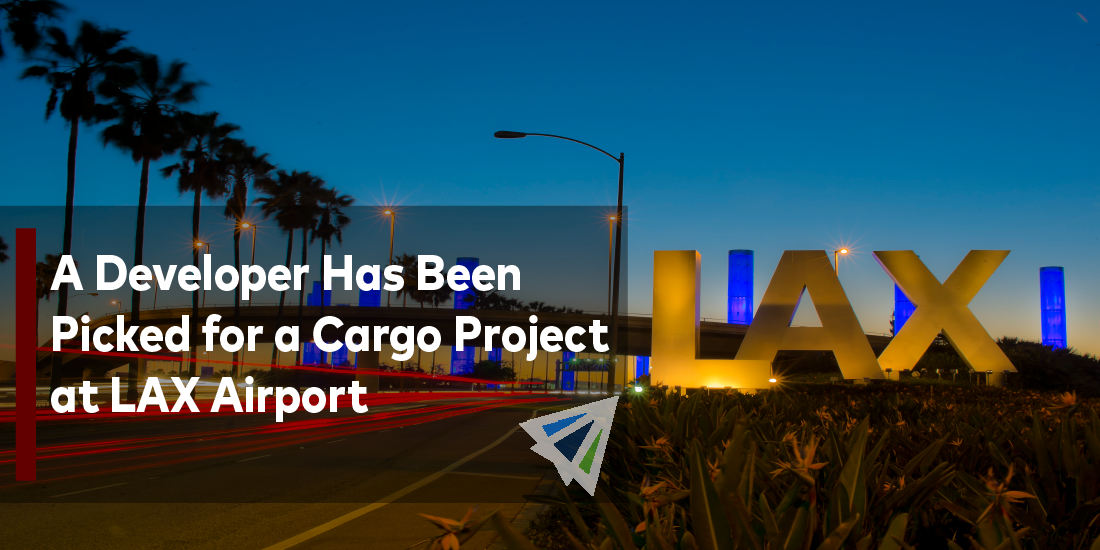In an effort to improve capacity and efficiency, Los Angeles International Airport (LAX) has unveiled a daring plan to renovate outmoded cargo facilities and build an innovative cargo village. This large-scale project will be carried out by a consortium led by Realterm, a well-known on-airport air cargo real estate manager in North America.
Given the possible extent of the rehabilitation and LAX’s status as the largest conventional international gateway in the country, the project is of utmost importance. After Miami, LAX processed over 2.7 million tons of cargo in 2022, placing it as the fifth-largest airport in the United States for air cargo tonnage and second-largest cargo airport overall.
Current LAX Airport Challenges
Industry experts underline the need for a significant cargo improvement to maintain LAX’s development and competitiveness. The current cargo facilities are substantially out of date and do not meet current industry requirements. They are dispersed throughout three locations, 27 buildings totaling 2.6 million square feet, and about 3.5 million square feet of airplane ramp area. Many of these structures, which range in age from 20 to 80 years, have lost all of their usefulness.
Due to logistics businesses’ need to shuttle trucks to dispersed airline warehouses throughout the airport, the current structure increases truck traffic and complexity and causes delays in task completion. Additionally, the low structures and structural barriers make it difficult for cargo to move freely and to be stored.
Chief Executive of Los Angeles World Airports Justin Erbacci stressed the importance of LAX as a key hub for both domestic and international trade. According to him, this project will strengthen LAX’s contribution to the region of Southern California as a whole and to the city of Los Angeles’ economic vitality.
New Design Promises Increased Efficiency and Capacity
The LAX Community Partners consortium, which is in charge of this game-changing initiative, will operate the cargo complex while supervising its design, construction, and finance. The equity partners include the airport division of Realterm, a transportation-focused investment manager with experience in managing transload trucking terminals and warehouses for final-mile delivery, and JLC Infrastructure, a joint venture between Magic Johnson Enterprises and Loop Capital Partners.
The design calls for a 1.6 million square foot, two-story facility with airside access that will have automated material handling machinery to increase cargo flow. Additionally, it will have off-site cargo support facilities and a truck staging area, offering secure conditions for deconsolidation and other processing. A truck management system will control the arrival of delivery vehicles to reduce traffic and emissions. To enhance the working environment for the cargo community, the off-site area will provide a variety of amenities such food services, a gym, and training rooms.
The innovative character of this construction was noted by David Rose, managing director of airport infrastructure at Realterm, who saw it as the model for future air cargo facilities.
Officials promise that more details about the timing and budget will be determined once the pre-development phase is finished and a formal decision to proceed is made, even if the multibillion-dollar project’s precise cost is still unknown.
The LAWA board has signed a three-year pre-development agreement with LAX Community Partners to help the project get environmental approval and to create a budget for the first phase of the cargo redevelopment. Furthermore, $8.2 million has been set aside to start the planning and design process.
The first phase of construction is planned to last into the following decade, and the environmental evaluation, which is slated to cost $25 million, is set to start in the third quarter of 2024.
Due to overseeing a $18 billion project aimed at updating passenger terminals, improving access roads, and building an elevated people-mover train, LAWA previously decided to delay the cargo revamp. The attempt was further put off by another year or more due to the COVID situation. But now that the consortium has been chosen, LAX is ready to transform air cargo operations and firmly establish itself as a key hub for international trade.
Looking Ahead
Should you have any questions regarding this and how it could impact your shipments, please reach out to our team today.
Additionally, we have our weekly market updates that can provide you with relevant freight news, updates, developments across the industry, and more.
